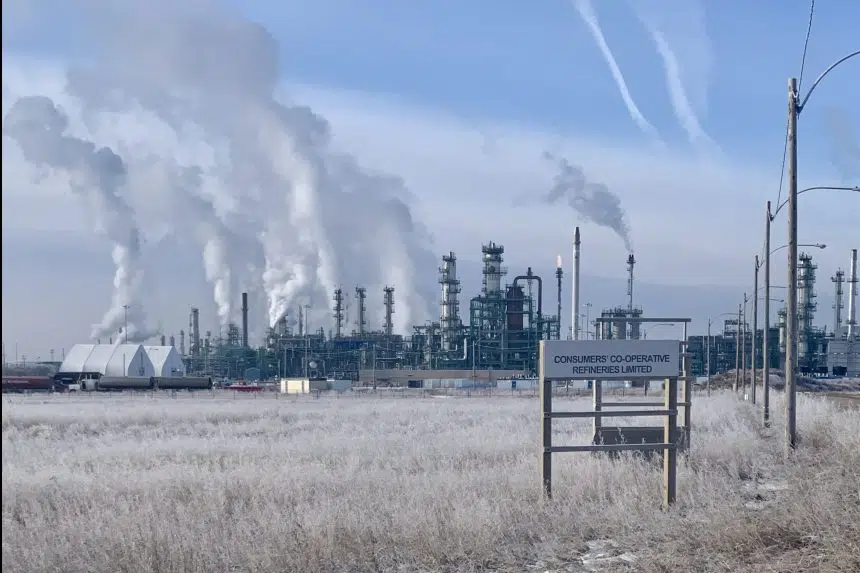Federated Co-operatives Limited (FCL) has released its offer to Unifor Local 594 as the two sides try to negotiate a new labour contract, after FCL declined parts of a special mediator’s report on Sunday.
The company tweeted out the details of what it’s declining Thursday morning; Unifor announced on March 20 that it accepts the mediator’s report in full.
FCL locked out Unifor Local 594 members who work at its Regina oil refinery on Dec. 5.
The company said it can’t accept the specifics of how and when employees would start contributing to their defined benefit plans.
Here’s a summary of our offer to @Unifor594 in comparison to the Special Mediators’ report. You’ll see there are areas where modifications were made in comparison to the report. We encourage Unifor 594 to accept our final offer. Here’s the certain deal that will end this dispute. pic.twitter.com/uLpI2ZlSTg
— Co-op Refinery (@CoopRefinery) March 25, 2020
Mediators Vince Ready and Amanda Rogers recommended starting on Feb. 1, 2022 that oil refinery employees contribute eight per cent of annual earnings to their plans.
FCL wants to bring it back by one year to Feb. 1, 2021, still at eight per cent. The company also wants to bump up the amount a year later in 2022 to approximately 9.75 per cent; FCL says it will also contribute the same amount to employees’ plans.
Co-op also disagrees with the mediators’ recommendation on the accrual rate for the defined benefit plan.
The recommendation states: “The accrual rate be maintained at 2 per cent of final average earnings with no CPP-related reduction applied at age 65 as presently exists in the DB plan.”
FCL doesn’t want any changes on that front.
The final item the company rejected is maintaining employees’ savings plans. Instead, the company is proposing that employees choose between a modified savings plan and a performance plan. FCL says the modified savings plan would be a four per cent matching contribution.
In a statement released on Sunday, FCL said it needs “to make modifications out of our responsibility to our employees, our co-op owners, our customers and the broader communities that depend on the long-term sustainability of the CRC.”
The company also said: “We must now also consider the stark world developments that are presently unfolding and their impacts to both our business reality and our ever-more critical responsibility to our multiple stakeholders. Global economic circumstances have changed, and with that, we have seen a drastic decline in the consumer consumption of fuel and rapidly declining oil prices that have put the CRC in a more difficult financial position than when negotiations began.”
Co-op said because of that, it’s considering how to “reduce costs, delay capital spending, protect jobs and make decisions around cancelling projects that are no longer viable. As negotiations proceed, the CRC will ultimately need to make decisions that are responsible and responsive not only to its employees but also to our local co-op owners, customers and the broader communities across Western Canada.”







